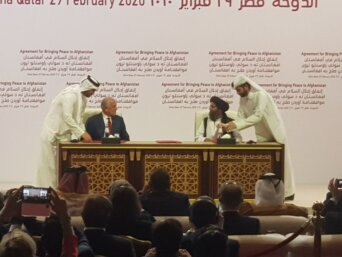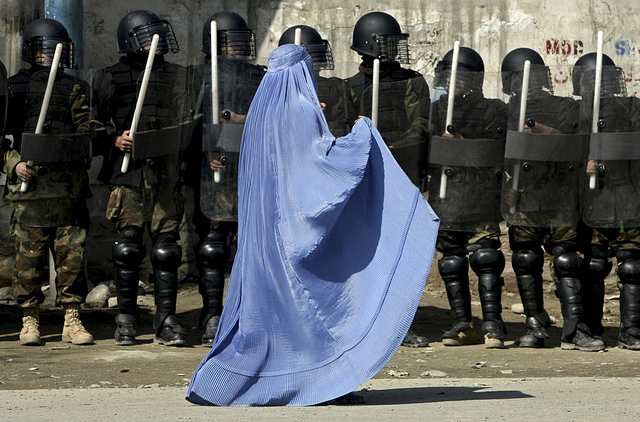- About
- Topics
- Picks
- Audio
- Story
- In-Depth
- Opinion
- News
- Donate
- Signup for our newsletterOur Editors' Best Picks.Send
Read, Debate: Engage.
| topic: | Peace and Reconciliation |
|---|---|
| located: | Afghanistan, USA |
| editor: | Shadi Khan Saif |
The mushrooming of new alliances of old stalwarts in the Afghan political arena amid the rush on the part of the US for a 'dignified exit' is nothing more than a desperate quest for power, legitimacy and relevance by greedy opportunists.
Such individuals and groups are pushing for an interim government or some sort of alliance with the Taliban, while pitching and selling the idea as a way out of the current crisis and bloodshed.
The arguments presented in support of this proposal include notions that the Taliban does not recognise the current government and would not like to become part of it through a peace deal, that the current government is not inclusive and that the US has already inked a deal with the Taliban (in February last year).
However, the impatience is evident on the part of tried and tested politicians, many of whom were directly involved in the devastating civil war of the 1990s and want to gain back the lost control over people and state.
Afghanistan's history is littered with blood and vacuums of power allowing hostile and power-hungry forces to wreak havoc.
Expecting a genuine and sustainable peace from a coalition government formed through boardroom meetings of elite-minded figures who are totally detached from the public would be quite naive, to say the least.
And, furthermore, why rollback the hard-earned and relative success of democracy by sending the elected leadership packing just because these individuals are no longer in power or because the US has decided to incorporate the Taliban in government the way the it wants.
The approaching deadline of 1 May - which was agreed upon between the Taliban insurgents and the Trump Administration as ultimatum for withdrawal of foreign troops from Afghanistan - should at no cost compel the Afghans to accept just any arrangement imposed on them by warlords turned politicians, armed rebels or foreign regional powers.
There is no denial of the pivotal role the US plays as a key stakeholder in Afghanistan; yet, that doesn't mean it can go on a solo flight with a strategy largely centered around its own domestic and strategic interests rather than the country and people who would have to face firsthand the consequences of such a deal.
No doubt the Afghans desperately want and deserve for the conflict to be over and peace to prevail, but a peace deal imposed under fear with no say or guarantees for rights and liberties can hardly last.
A peaceful settlement to the conflict is the desire of all Afghans, however, and for democratic values to flourish and people's lives to be secure, any regime change should not be imposed but realised constitutionally through free, fair and inclusive ballots.
Image: Makxim Prostos.

